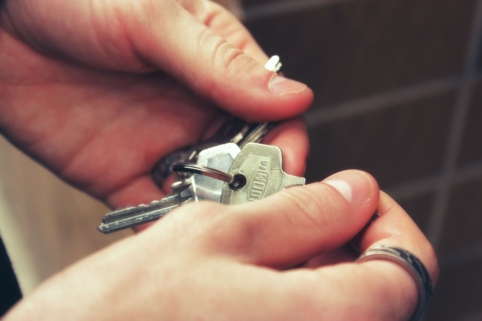Contingencies and House Offers: What You Need to Know
Just like everyone talks about the excitement of college but not the uncomfortable dorm beds, just like people say they had a “great time” at Thanksgiving but skip the part where Aunt Tonya said the government was spying on her, contingencies are an often unmentioned—but highly important—part of the home buying process.
Except unlike those aforementioned scenarios, contingencies are a good thing. They protect you in the process of buying a home, which is likely the biggest financial investment you’ll make in your lifetime. Take a look at how contingent offers on a house work!
Types of Contingencies

Getting your offer accepted feels amazing, but before you officially seal the deal,, you want to make sure you’ve covered your bases. There are three main types of contingencies that people include in their written offer:
Financing
Pre-approval on a loan does not guarantee approval for on your actual loan application. The bank might not agree with the house you chose, or their appointed appraiser might find the home’s value at less than what you’re asking to borrow. If you include this contingency into your offer, you’ll be able to back out of the contract.
Home Inspection
Home inspections examine the condition of a property and inform you of any issues. They happen after your offer is accepted, which is why you want to make the sale contingent on the inspection results. Minor bathroom fixes may only be $100 or so; cracks in the foundation are another story.
If you don’t include inspection contingencies in your offer, you’re agreeing to accept the home as-is. This adds risk to your investment—you could end up spending thousands on previously unnoticed repairs. However, people who invest in real estate and flip houses purposely accept a home as-is so that they can close faster and start renovating.
Needless to say, you have options with home inspections when making a contingent offer on a house. The best thing you can do is to make this contingency decision with intention and in alliance with your needs.
Home Sale

First-time property owners won’t have to worry about this one, but it’s good to know all the same. If you currently own a house and are worried about it selling in time for closing, make a contingency that buying a new house depends on the sale of your existing home. But be wary of this contingency—today’s market is highly competitive. Your offer could be rejected if a home sale contingency is in place.
Writing Contingencies
There’s a delicate balance to writing contingencies in your offer. On the one hand, you want to protect yourself as you move forward with this massive investment. On the other, your contingencies (depending on what they are) could leave your letter of offer repeatedly rejected.
Sellers may get several offers; they may even get dozens. You’ll want your offer to stand out, but you won’t want to compromise your finances in the process.

That’s the great thing about working with RealtyHive. Sellers don’t have to worry about contingencies when selling at a time-limited event, and can even end up with more offers. Look for your next home or sell your current one with RealtyHive. We’ll help you navigate!



